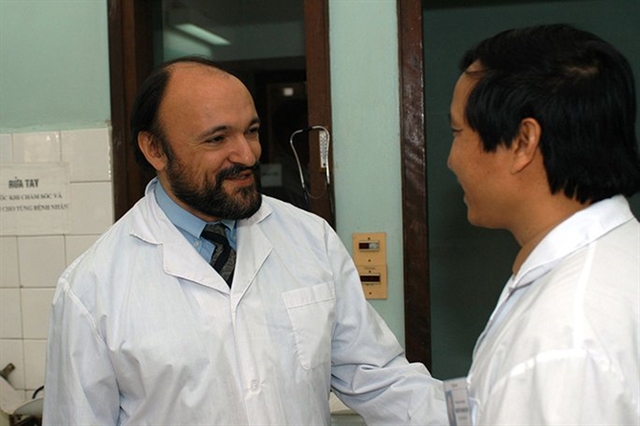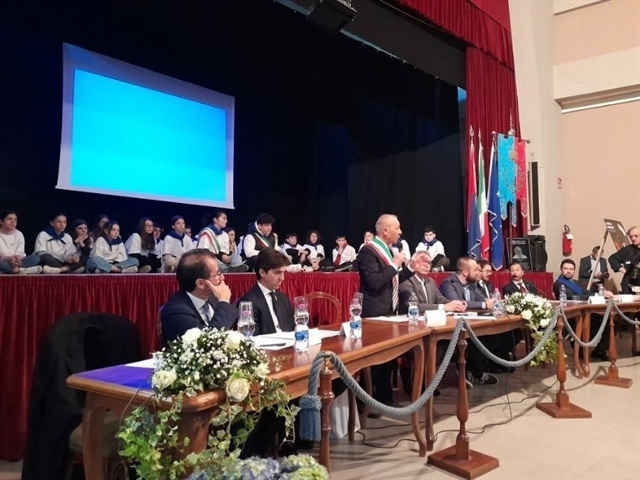 Politics & Law
Politics & Law


|
| Late Dr Carlo Urbani speaking with a local counterpart. — Photo courtesy of WHO |
ROME — The Carlo Urbani Museum, named after an Italian doctor who identified severe acute respiratory syndrome (SARS) in Việt Nam in 2003 and then died of the disease, has been officially opened in his hometown of Castelplanio, Italy’s Ancona Province.
Speaking at the opening ceremony on April 1, Tedros Adhanom Ghebreyesus, director general of the World Health Organization (WHO), called Carlo Urbani a hero of the world and a symbol for the world's fight against diseases.
His contributions to preventive medicine and vaccination, as well as treatment in under-developed countries, are still valid today, Ghebreyesus said.
On this occasion, Ghebreyesus presented the museum with a commemorative board once located at WHO headquarters in Geneva.

|
| The launch of the Carlo Urbani Museum in Italy’s Ancona Province. — VNA/VNS Photo |
Nguyễn Thái Học from the Vietnamese Embassy in Rome emphasised that the event once again pays tribute to Dr Carlo Urbani, honouring his great valuable contributions to world health in general and his dedication to the cause of protecting people’s health in particular.
Học said as a WHO infectious disease expert in Việt Nam, Calos Urbani helped the country analyse and identify the viral agent that caused the SARS.
“Through isolation and intensive care, he found a way to defeat SARS in a short time," he said. "His life is a testament to the deep friendship between Italy and Việt Nam.”
In 2022, the Italian Government gave the late doctor the Knight of the Order of Merit to honour his great contributions to detecting, identifying and responding rapidly to new diseases. — VNS




